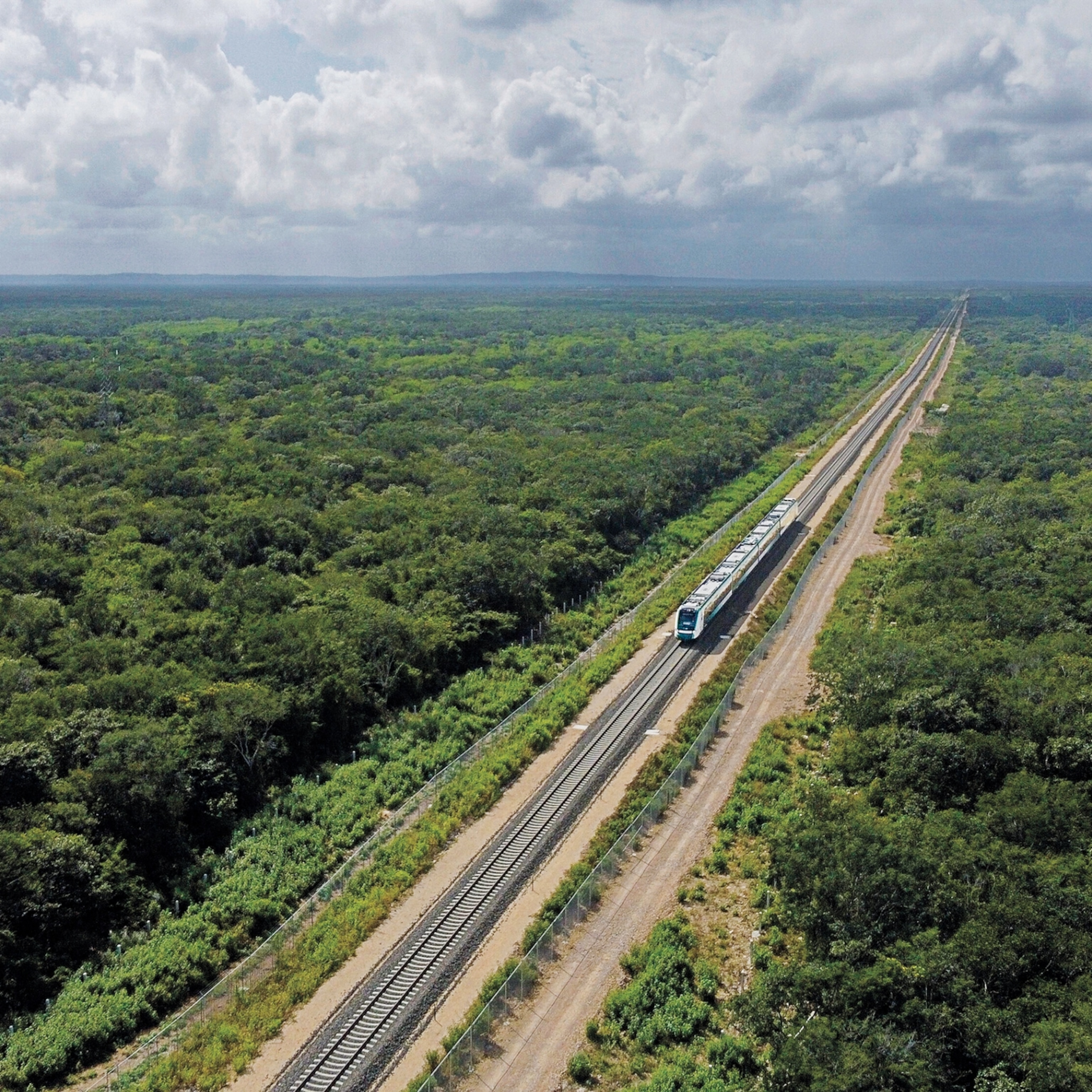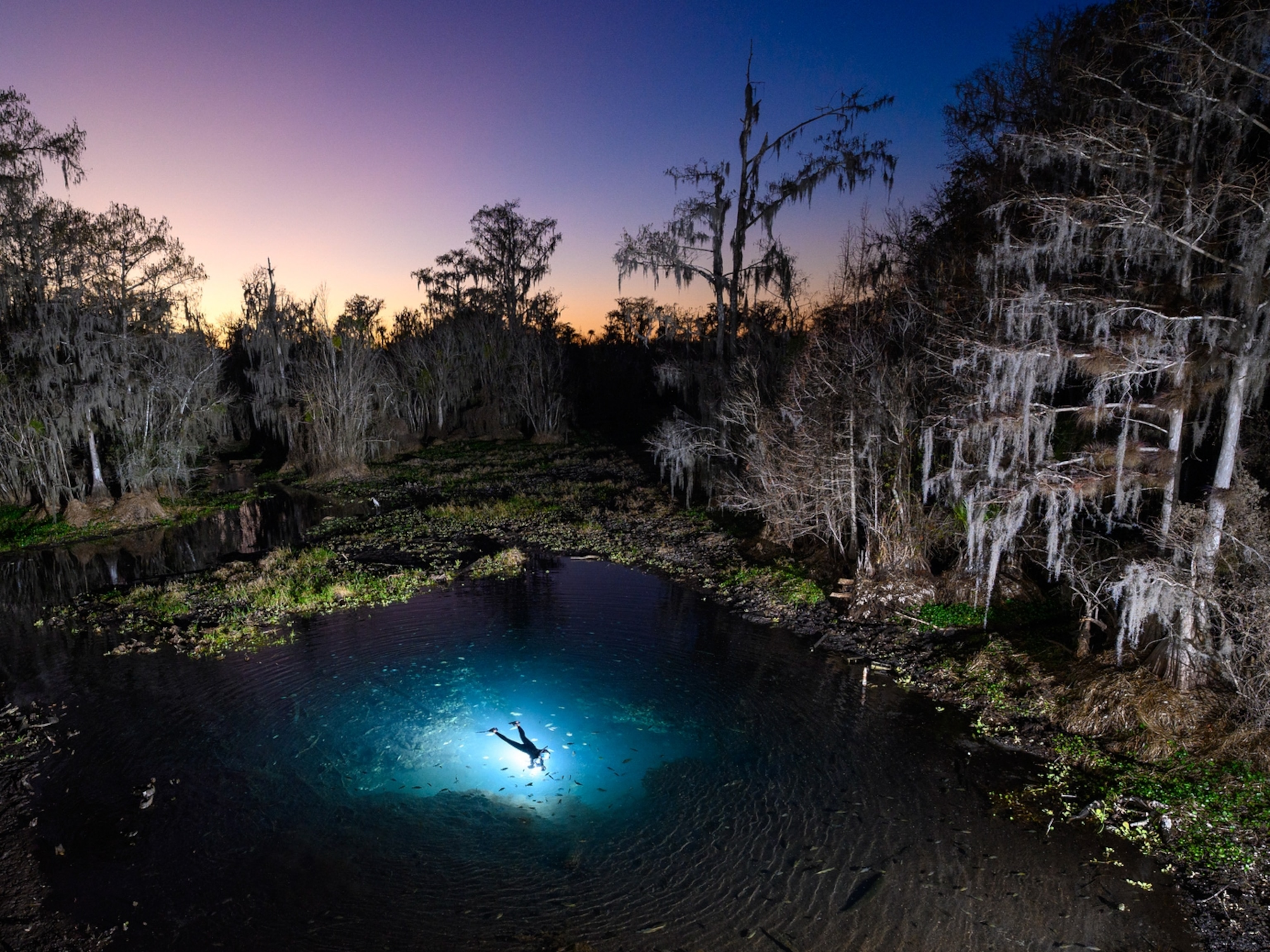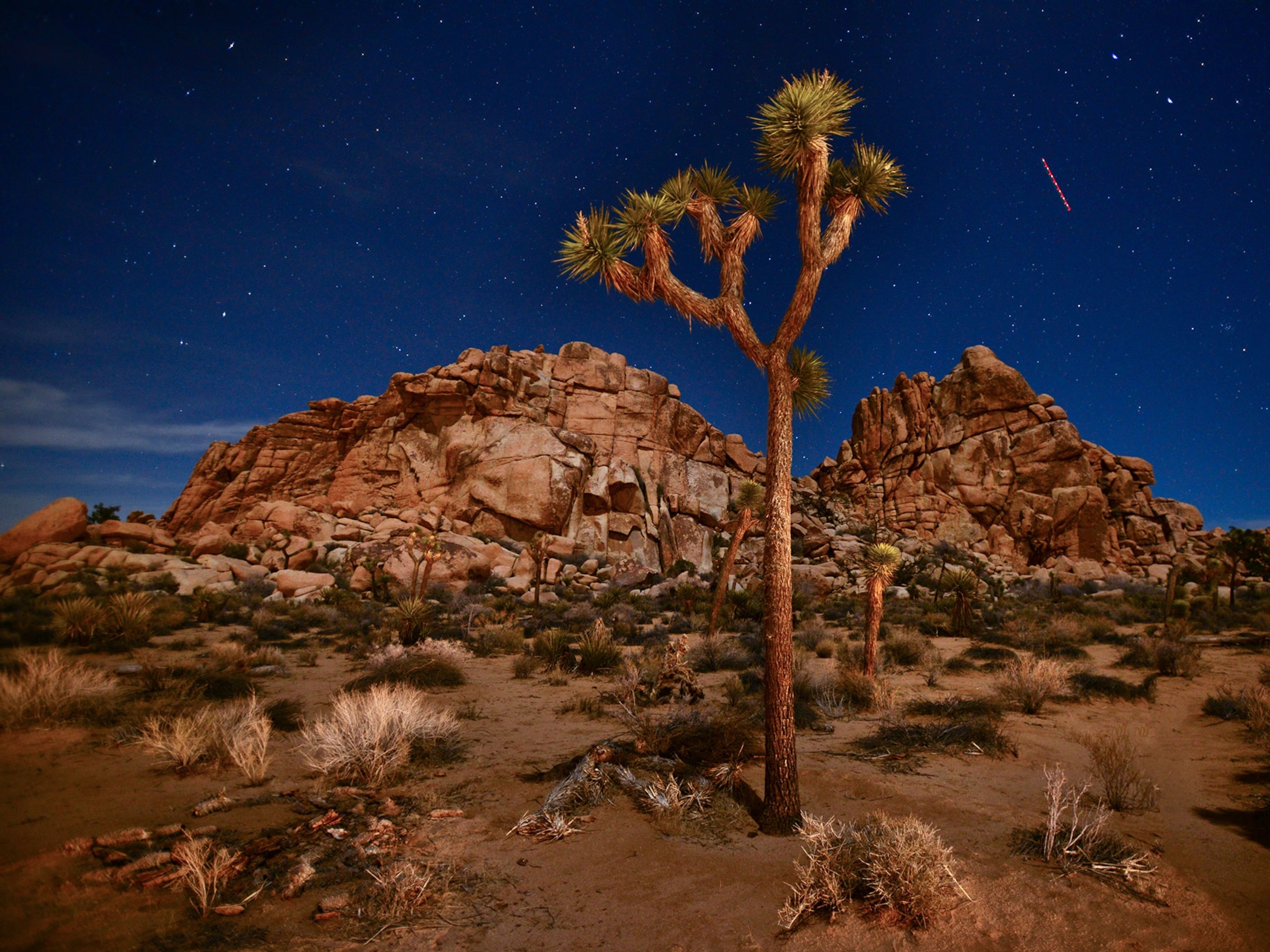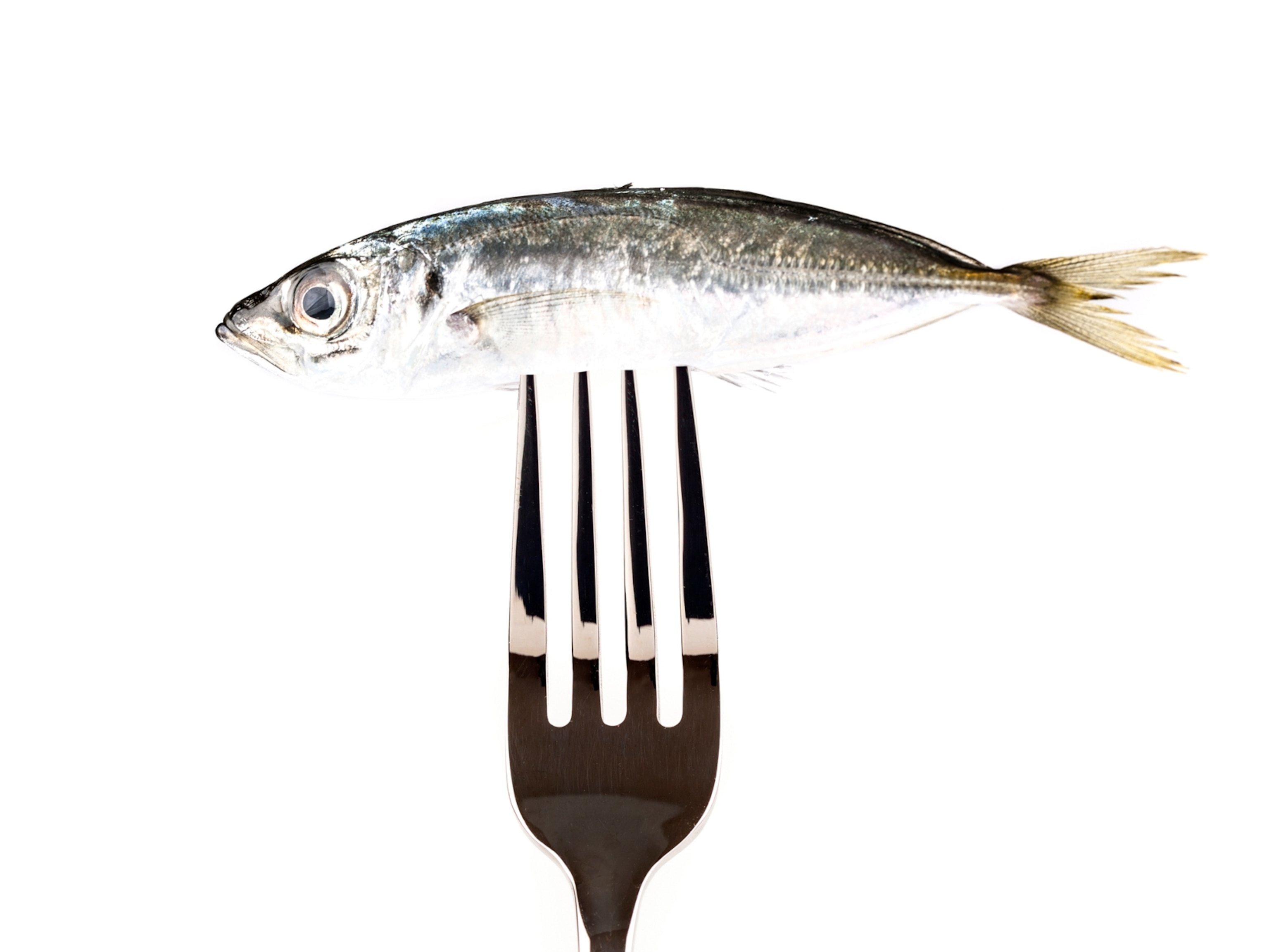Can food crops grow in the dark? Scientists are working out how.
Experiments suggest that it might become possible to nourish plants without photosynthesis—a tool that could one day help feed astronauts and a crowded planet.

Science fiction stories have imagined future people living in underground cities on Mars, in hollowed-out asteroids, and in free-floating space stations far from the sun. But if humans are ever to survive in any of those harsh and alien environments, they will need ways to grow food using limited resources—and photosynthesis, the wildly successful yet energy-inefficient process by which plants turn sunlight into sugar, might not cut it.
Now, some scientists are wondering whether it’s possible to produce food more efficiently by skipping photosynthesis altogether, and growing plants in the dark.
The idea sounds as science fictional as cities on Mars. But a team of researchers has taken a first step toward realizing it with a study published in Nature Food in June. The research shows it is possible to grow algae, edible yeast, and mushroom-producing fungi in the dark by nourishing them with a carbon-based compound called acetate that didn’t originate from plants, but instead was manufactured using solar electricity. The scientists are hopeful that this method, a type of “artificial photosynthesis,” could unlock new ways to produce food using less physical space and energy than traditional agriculture—including, perhaps, crops that can grow in the dark.
While other experts are skeptical that it will ever be possible to redesign plant biology so radically, they are excited by the technology the researchers have invented and the team’s out-of-the-box idea about how to make food production more efficient.
“We have to figure out ways to grow plants more efficiently,” says study co-author Feng Jiao, a professor of chemical and bio-molecular engineering at the University of Delaware. “Which [solution] is best? I think the beauty of science is that we explore all the possibilities.”
More efficient than nature
With the exception of a few extreme environments such as deep-sea hot springs—which are sustained by the chemical energy of hydrogen sulfide bubbling out of cracks in the seafloor—all life on Earth is fueled by the sun. Even apex predators like tigers and sharks are part of complex food webs that trace back to plants, and in the oceans, tiny green algae. These so-called primary producers have a biological superpower: the ability to create organic carbon from carbon dioxide via photosynthesis, a biochemical process powered by sunlight.
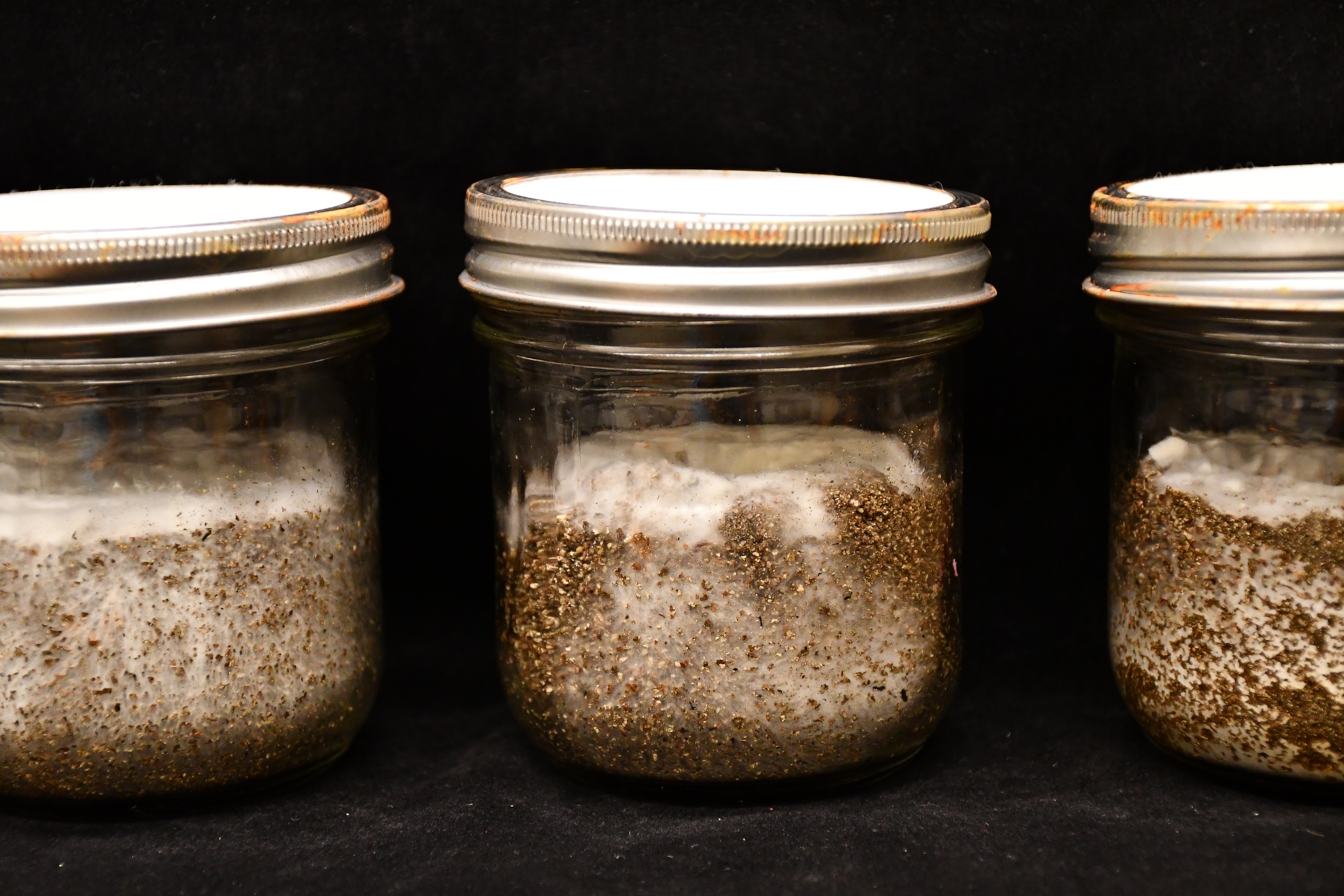
But while photosynthesis is essential to life as we know it, it’s not terribly efficient: Only about one percent of the sunlight that falls on plants is actually captured and used to make organic carbon. That inefficiency will pose a challenge if humans ever want to establish a self-sustaining presence in space, where it will be vital to produce food using as few resources as possible.
It’s also a problem on Earth today as the human population grows, placing pressure on farmers to squeeze more calories out of the same land.
Some scientists believe the solution is genetically engineering crops to photosynthesize more efficiently. The researchers behind the new study are proposing something more unusual: Replacing biological photosynthesis with a partly artificial process for turning sunlight into food. Their process is a version of artificial photosynthesis, a term that has been around for years and encompasses various approaches to converting sunlight, water, and CO2 into liquid fuels and chemicals like formate, methanol, and hydrogen. The researchers behind the new study say their work represents the first time an artificial photosynthesis system has been paired with an attempt to grow common food-producing organisms.
Their system is based on electrolysis, or using an electrical current to drive chemical reactions within a device called an electrolyzer. In their recent study, the researchers created a two-step, solar-powered electrolyzer system that converts carbon dioxide and water into oxygen and acetate, a simple carbon-based compound.
The authors then fed this acetate to Chlamydomonas reinhardtii, a photosynthetic green alga. They also fed acetate to nutritional yeast and to mushroom-producing fungi—which don’t photosynthesize themselves but ordinarily require organic carbon made by plants to grow.
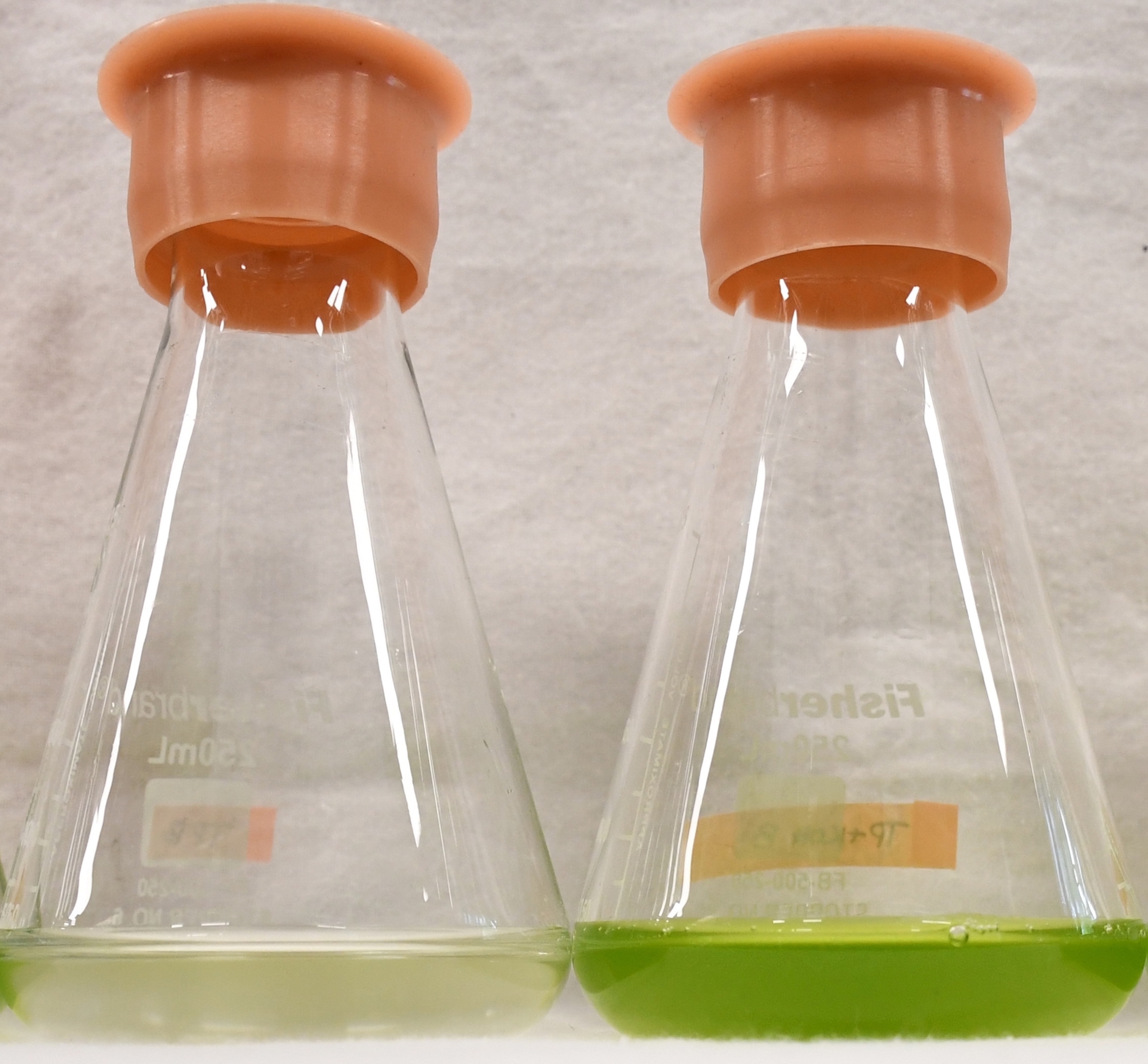
All of these organisms were able to take up the acetate and grow in the dark—independent of sunlight or photosynthetically derived carbon.
Compared with photosynthesis, the process was surprisingly efficient. Using artificial photosynthesis, green algae could convert solar energy into biomass about four times as efficiently as crops do using biological photosynthesis. Yeast grown using this process were almost 18 times more energy efficient than crops.
“This is one of the key advantages of using artificial pathways versus nature’s pathways,” Jiao says.
Growing crops in the dark?
Scientists already knew that the alga C. reinhardtii can grow on acetate in the dark—the organism is a mixotroph, meaning it can switch back and forth between making its own food photosynthetically or eating organic carbon produced by other plants. But according to senior study author Robert Jinkerson of the University of California, Riverside, this is the first time C. reinhardtii was grown on acetate that didn’t come from recent photosynthesis or from petroleum products, which are the fossil remains of ancient photosynthesis. That’s significant.
“This is the first time any photosynthetic organism, like algae or a plant, have grown independent of photosynthesis since they evolved,” Jinkerson says. “It’s completely decoupled.”
Having grown algae without photosynthesis, the researchers turned to a more difficult question: Could they also grow crop plants?
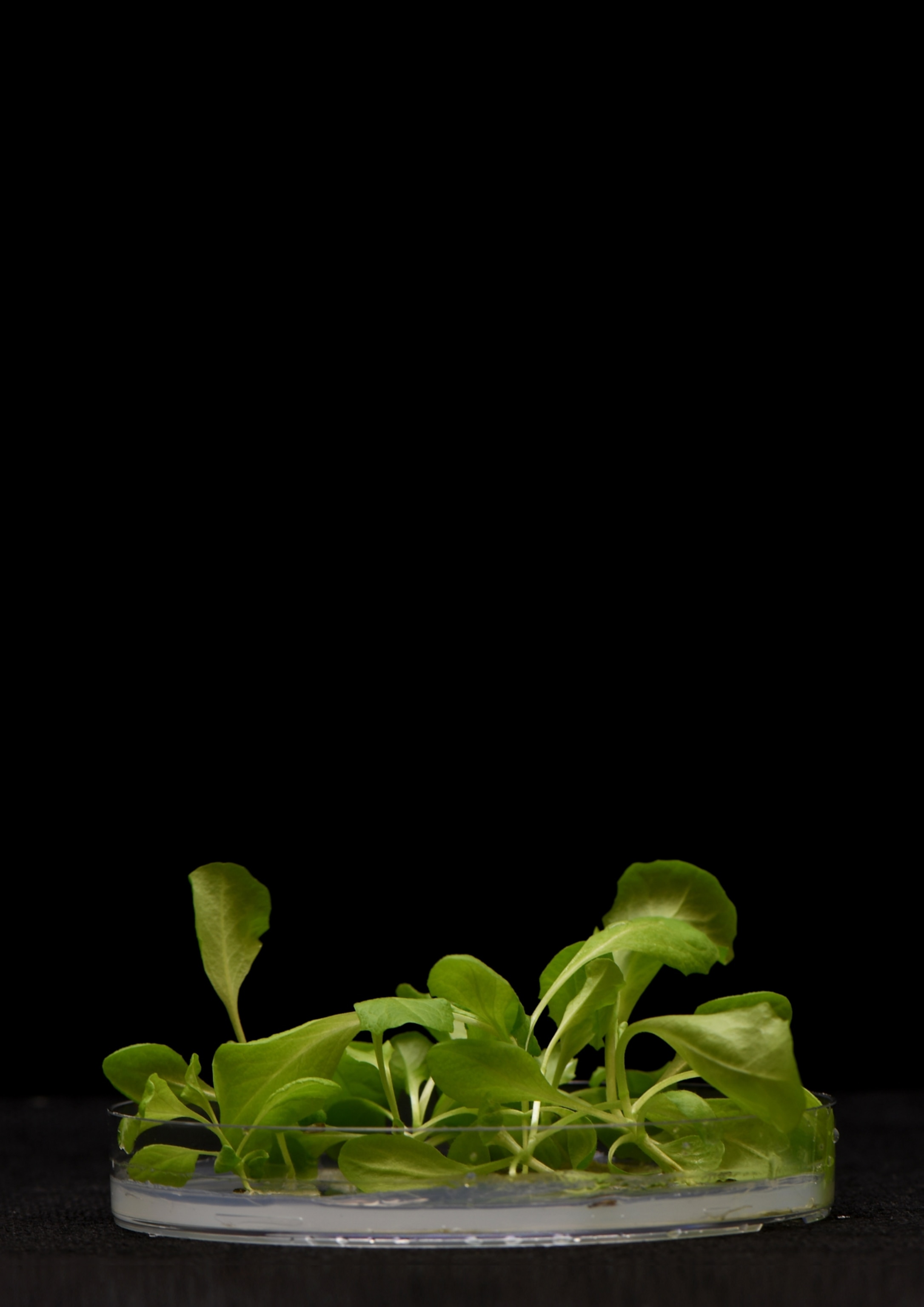
Their initial results were encouraging. In the dark, the researchers grew lettuce tissue in a liquid suspension containing acetate, confirming that it can take up and metabolize an externally supplied carbon source.
And when they grew whole lettuce plants in the light (as well as rice, canola, tomato, and several other crop species), but fed them supplemental acetate, they found that the plants incorporated acetate into their tissue. Acetate marked with a heavy isotope of carbon, called carbon-13, could be traced into both amino acids and sugars, suggesting plants can use it to support a variety of metabolic processes.
However, the study did not show that whole plants can be grown entirely on acetate without access to sunlight—in fact, the researchers’ experiments with lettuce indicated that too much acetate actually inhibits plant growth. Jinkerson says his lab is currently working on genetically engineering and breeding plants to be more tolerant to acetate. That will be necessary for the team’s artificial photosynthesis method to support plant growth and food production in a significant way.
Emma Kovak, a food and agriculture analyst at the Breakthrough Institute, says the authors’ results represent a “first step toward potentially using acetate to help feed plants for indoor production.” That could reduce the energy needed to run indoor farms if it allows growers to reduce indoor light levels. But “massive progress would be necessary,” Kovak says, to enable plants to grow robustly using acetate even under low-light conditions.
Evan Groover, a PhD candidate in synthetic biology at the University of California, Berkeley, whose research focuses on genetically engineering plants to improve photosynthesis, agrees. The study “shows plants can uptake acetate, but that isn’t evidence of them being able to really thrive on that or meaningfully synthesize food, fuel, or medicine,” Groover says. Accomplishing the latter, he says, would require “completely reprogramming plants.”
At the same time, Groover says he found the authors’ paper “exhilarating.”
“It shows us ways in which we might be able to capture light and carbon in strange, non-terrestrial environments, or environments where you can’t do traditional farming,” he says.
Food for deep space
An extraterrestrial environment might be where the researchers’ technology is first applied. The researchers submitted their artificial photosynthesis concept to NASA’s Deep Space Food Challenge, which awards prize money and recognition to groups with innovative ideas for feeding astronauts on long-term space missions. Last fall, the team’s concept was named one of 18 U.S.-based Phase 1 winners. In Phase 2, those teams are required to build a prototype that actually produces food. Winners will be announced next year.
Winning the competition is no guarantee that a novel food production tech will be flown on a future space mission. Many technical details would need to be worked out first, says Lynn Rothschild, a senior research scientist at NASA’s Ames Research Center who wasn’t involved with the new study. Weight is a key consideration—and artificial photosynthesis would likely require hauling new equipment, including additional solar panels and electrolyzers, into space.
But Rothschild says it’s worth keeping an open mind about how any efforts to redesign a fundamental biological process like photosynthesis could be applied, in space or on Earth: “The payoff may be something we haven’t imagined yet.”


